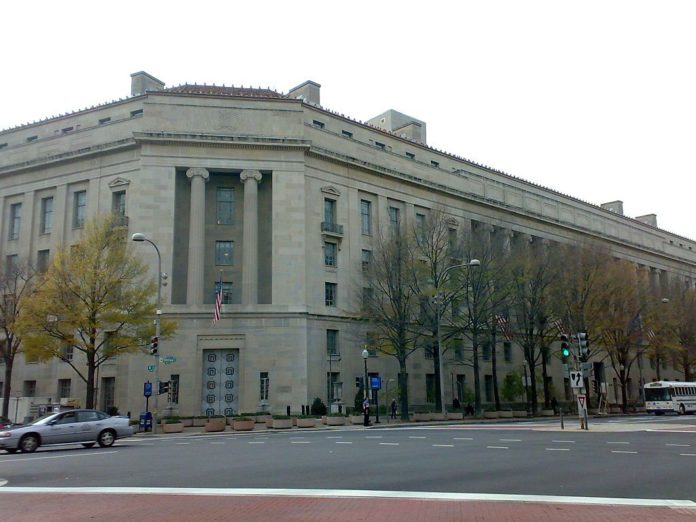
Under new guidance, companies with antitrust compliance programs might see leniency from the U.S. Department of Justice in federal investigations, even if they fail to prevent an antitrust violation.
The DOJ’s antitrust division announced a policy change July 11, stating it will consider giving companies leniency at the charging stage of a criminal antitrust probe. That change will be reflected in the DOJ’s Justice Manual and includes detailed guidance for prosecutors on what counts as a “good-faith” antitrust compliance program. This development gives companies more opportunity for leniency as well as a road map for how they might get it.
In a press release, Assistant Attorney General Makan Delrahim said the antitrust division “is committed to rewarding corporate efforts to invest in and instill a culture of compliance.” Corporate compliance programs had previously factored into the division’s antitrust prosecution decisions but at the sentencing stage of a case.
“Crediting compliance at charging is the next step in our continued efforts to deter antitrust violations and reward good corporate citizenship,” Delrahim said, adding the division “remain[s] dedicated to predictability and transparency.”
The antitrust division prosecutes criminal violations of the Sherman Act such as price fixing, bid rigging and market allocation schemes.
The DOJ has long held a corporate leniency policy for companies that self-disclose possible antitrust crimes, sometimes offering a non-prosecution agreement to the first company in an anticompetitive ring to come forward. But it was never policy to offer a company credit at the charging stage for a compliance program.
Now, companies that didn’t get leniency from self-disclosure still have the potential to enter into non-prosecution agreements, according to Todd Seelman, who chairs Lewis Brisbois Bisgaard & Smith’s national antitrust and competition practice and its government investigations practice. “It’s a sea change for the antitrust division and a welcome one,” he said. Delrahim has made the DOJ’s policies in antitrust enforcement more predictable, and “this is another example of that,” Seelman added.
Seelman said the DOJ is clearly incentivizing compliance programs. “The hope, I think, is that all companies, small, large and medium, all take antitrust compliance seriously and develop an effective antitrust program.”
It’s hard to say yet exactly how much leniency companies stand to gain at the charging stage from having an antitrust compliance program, according to Alissa Gardenswartz, a shareholder at Brownstein Hyatt Farber Schreck in Denver. She added that federal prosecutors will evaluate each program on a case-by-case basis, but the mere existence of one isn’t going to help the company in any case.
“A simple written compliance program that functions more as window dressing isn’t going to cut it,” Gardenswartz said.
The Justice Manual directs prosecutors to weigh whether the compliance program is “well designed,” is applied “in good faith” and if it works.
One of the elements prosecutors will look at is how comprehensive the program is.
That includes how often the program is reviewed and updated, and whether employees are trained to spot potential antitrust violations in pricing changes, industry hiring practices and other contexts. Other elements include whether the program fosters “a culture of compliance” in the company and how effectively it can detect antitrust violations.
The fact that violations seeped through the compliance program won’t preclude the DOJ from finding the program was nonetheless effective and applied in good faith.
In his remarks announcing the new policy, Delrahim said, quoting former Deputy Attorney General Rod Rosenstein, “‘the fact that some misconduct occurs shows that a program was not foolproof, but that does not necessarily mean that it was worthless.’ We can make objective assessments about whether programs were implemented in good faith.”
“It’s very possible that there was a very effective, robust antitrust compliance program, and something was missed,” Seelman said.
States have their own antitrust laws, and many state attorneys general, including Colorado’s, can prosecute criminal antitrust violations. While state attorneys general might not adopt the DOJ’s corporate leniency policy, some might look to it as a “guidepost,” Seelman said.
Gardenswartz, who was previously Colorado’s deputy attorney general for consumer protection, said that criminal antitrust cases on the state side are rare, particularly in Colorado. It’s unclear which states, if any, might follow the DOJ’s lead in incentivizing compliance programs in the charging stage, she added. She did note that as a general rule, state attorneys general who have more divergent views from the presidential administration might hew less closely to federal DOJ policy.
In any case, the potential of leniency from the DOJ might be incentive enough for a company to maintain a thoughtful antitrust compliance program.
“[Companies] should definitely think about what their exposure is for antitrust liability,” Gardenswartz said, “and if they determine that there is that potential there, they should make sure that they have a robust antitrust compliance program in place.”
— Doug Chartier

